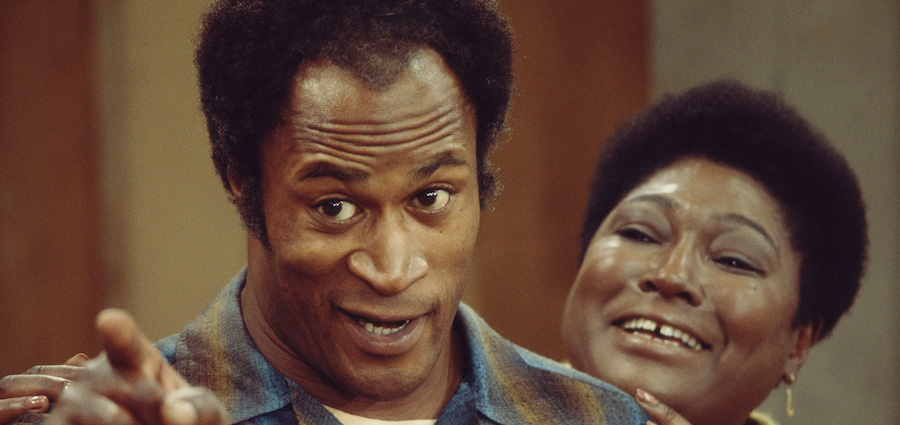LOS ANGELES, CA. (THECOUNT) — John Amos, an iconic actor best known for his role as James Evans on the beloved sitcom Good Times, has passed away at the age of 84. His son, Kelly Christopher Amos, confirmed the sad news, revealing that the Emmy-nominated actor died on August 21 in Los Angeles from natural causes.
Amos’s death marks the end of a remarkable career spanning decades, during which he became a household name and a prominent figure in American television history. His portrayal of James Evans, the strong-willed patriarch of the Evans family in Good Times, left a lasting impact on audiences and solidified his reputation as a beloved father figure on screen.
|
Advertisement |
A Career Defined by Iconic Roles:
John Amos’s career was distinguished not just by his time on Good Times, but also by other notable roles that showcased his incredible talent and range as an actor. Before his rise to fame on Good Times, he gained attention as Gordy the Weatherman on The Mary Tyler Moore Show, a role that endeared him to audiences and helped launch his television career.
In 1977, Amos took on the iconic role of the older Kunta Kinte in the groundbreaking miniseries Roots. His portrayal of the enslaved African turned American patriarch was both powerful and heart-wrenching, earning him an Emmy nomination. Roots was a pivotal moment in American television history, exposing millions to the brutal reality of slavery, and Amos’s performance remains a standout in the series.
Amos also appeared in numerous other television shows and films throughout his career, including The West Wing, The Fresh Prince of Bel-Air, and Coming to America, among others. His versatility as an actor allowed him to move seamlessly between comedy, drama, and historical roles, cementing his legacy as one of the most talented and respected actors of his generation.
A Legacy of Love and Admiration:
John Amos’s son, Kelly Christopher, shared a heartfelt tribute to his father upon announcing his death. “It is with heartfelt sadness that I share with you that my father has transitioned. He was a man with the kindest heart and a heart of gold… and he was loved the world over. Many fans consider him their TV father. He lived a good life. His legacy will live on in his outstanding works in television and film as an actor,” Kelly said in his statement.
Amos’s portrayal of James Evans in Good Times resonated deeply with audiences, especially within the African American community. As a tough but loving father who was determined to provide for his family, even in the face of financial hardship and systemic racism, Amos brought authenticity to the role. His character’s strength, integrity, and resilience mirrored the experiences of many families, making him an enduring figure in American pop culture.
A Trailblazer for Representation:
Amos was not just an actor; he was a trailblazer for African American representation in television. His roles in Good Times and Roots helped break barriers and brought important conversations about race, class, and family to the forefront of American television. His commitment to portraying characters with depth and humanity helped pave the way for future generations of Black actors.
Despite challenges, including a public departure from Good Times due to creative differences, Amos’s career continued to flourish. He remained vocal about the importance of meaningful representation in media, and his work has inspired countless actors and creators to push for authentic storytelling in Hollywood.
Remembering John Amos:
John Amos leaves behind a legacy not only in the world of entertainment but in the hearts of millions who grew up watching him. His ability to connect with audiences and his dedication to his craft made him a beloved figure, both on and off screen. Whether he was playing the stern but loving James Evans or the heroic Kunta Kinte, Amos brought passion and integrity to every role he undertook.
As the world mourns the loss of a television legend, his work will continue to inspire and entertain future generations. John Amos’s life was a testament to the power of storytelling and the impact that television and film can have on culture and society.
DEVELOPING::

